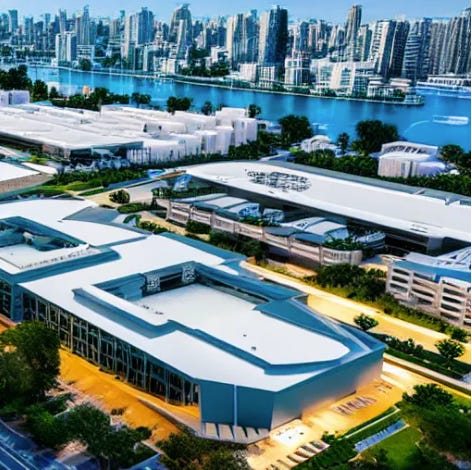FountainBlue's December 8 VIP Roundtable was on the topic of 'Smart Cities, Smart Buildings'. Our executives in attendance represented a wide range of perspectives and backgrounds, but had much in common:
They have deep knowledge and expertise around technology and a track record for delivering personalized solutions which make cities and buildings 'smarter' - more comfortable, more responsive.
They are collaborative leaders adept at building win-win alliances and partnerships so that they can better anticipate and deliver on customer needs.
Below is a summary of the conversation.
We have the computational power, technology expertise and leadership needed to gather more data from sensors so that we can deliver smarter solutions for rooms, buildings and cities providing:
comfort management - creating actionable dashboards to manage everything from temperature, humidity and filtration to vibration, pressure, stability, and light;
proactive management - anticipating and responding to natural or man-made disaster management;
power usage projection - analyzing past and projected future patterns of energy usage so you can proactively plan for energy distribution;
Below is a list of some opportunities ahead:
integrating sensors into everything from vacuums to refrigerators to collect more data
upgrading antennas to be more flexible and adaptable, working with multiple connectivity standards and sensor and data requirements
making connectors and cables more sophisticated and customizable, to work with complex circuits and more demanding requirements
capturing digital files in order to proactively manage a building's energy usage
creating solutions which support a city's infrastructure so that people are safer, people are more comfortable, people are more digitally connected
integrating software which works with a range of hardware to optimize construction, retrofitting, building optimization
There are exciting opportunities using Generative AI for scenario planning:
leveraging AI/ML to predict major climate occurrences which would impact consumers, businesses, cities
projecting the impact of extreme weather for buildings and city and building more support/responding more quickly from incidents
using what-if scenarios to help optimize building heating/cooling/filtering systems
Our bottom line is that the technology is there, and leaders are open to collaboration. But there are concerns that the labor pool and regulatory hurdles might make adoption and expansion more difficult, as we continue to develop smart building, smart city solutions.





